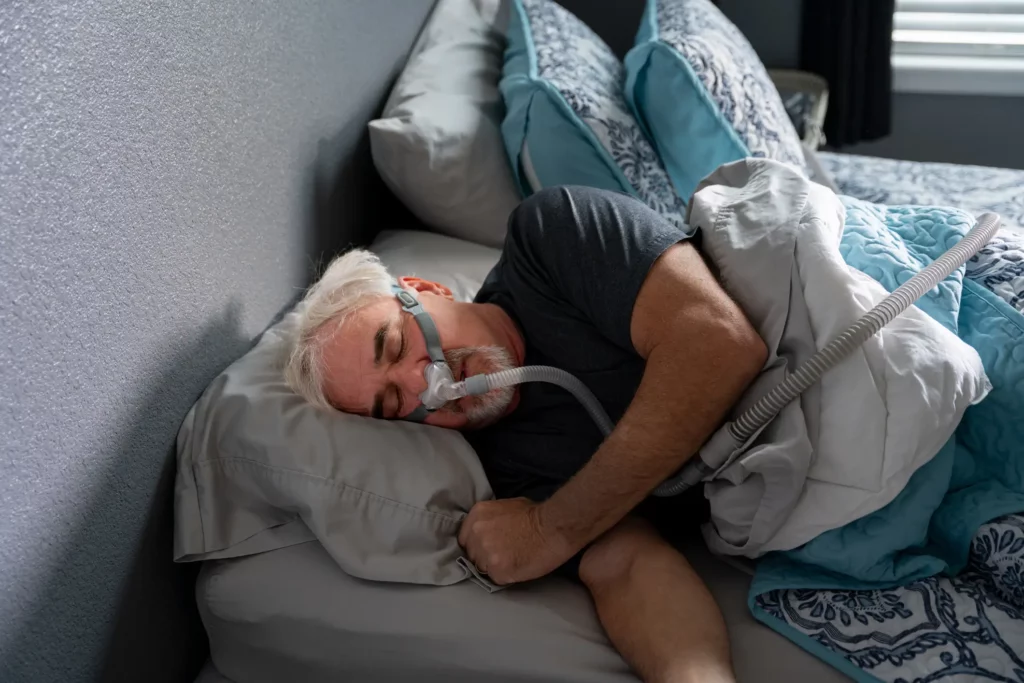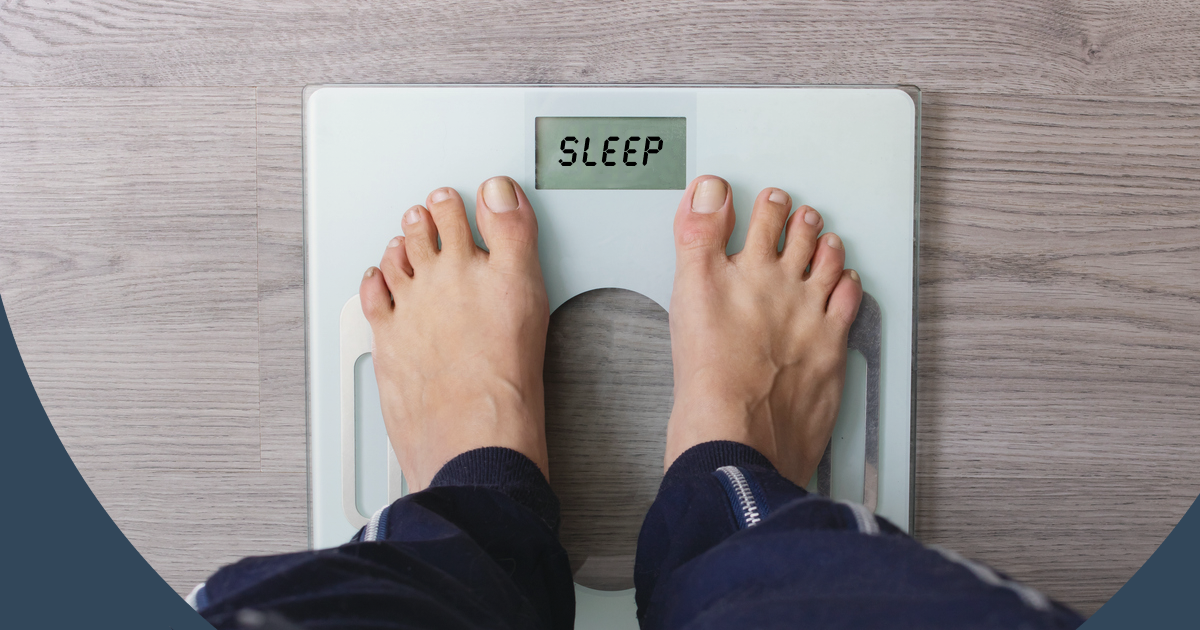We all know sleep is important for our overall health and well-being. But did you know that catching enough Zzz’s can also be a key factor in your weight loss journey? It’s true! There’s a fascinating relationship between sleep and weight loss, and prioritizing good sleep can be a game-changer for your efforts.
Sleep and Weight: The Relationship?
Research suggests a clear link between sleep and weight management. People who consistently sleep less tend to weigh more and gain weight over time. Studies following large groups of people for years show this connection. For example, middle-aged adults who sleep less than 7 hours a night are more likely to be obese compared to those who get at least 7 hours.
Scientists believe sleep influences weight through hormonal changes. When sleep-deprived, the body produces less leptin (a fullness hormone) and more ghrelin (a hunger hormone). This hormonal imbalance can lead to increased hunger and cravings, particularly for unhealthy snacks.
Insufficient sleep also disrupts metabolism, the process by which your body burns calories. Studies indicate that skimping on sleep can slow down metabolism, making weight loss more challenging.
These findings aren’t limited to adults. Sleep deprivation has been linked to a higher risk of obesity in children as well. This growing concern has led researchers to explore the role of sleep in weight management and potential weight loss strategies.
Sleep and Metabolism
Research published in the International Journal of Endocrinology suggests a link between insufficient sleep and a slower metabolism. Sleep deprivation can mess with your metabolism, the process your body uses to burn calories, potentially hindering weight loss efforts.
Think of sleep as brain food. Most adults need 7-9 hours a night to function properly. When you skimp on sleep, your body goes into overdrive. Here’s why:
- Stress Hormone Surge: Lack of sleep triggers a spike in cortisol, a stress hormone that tells your body to conserve energy. This can hinder weight loss efforts. Studies show dieters who slept less lost significantly less fat even while maintaining their calorie intake. They also felt hungrier and had lower energy levels.
- Insulin Resistance: Sleep deprivation disrupts your body’s ability to process insulin, a hormone crucial for converting food into energy. Within days of insufficient sleep, insulin sensitivity drops, making it harder to burn fat and promoting storage.
- Cravings Take Over: Sleepless nights create a biochemical imbalance, leading to unhealthy food choices. Tired and stressed brains crave comfort foods like high-carb and high-fat snacks, further hindering weight loss goals. Reduced impulse control due to sleep deprivation makes it even harder to resist these cravings.
In summary, getting enough sleep isn’t just about feeling good; it plays a vital role in regulating your metabolism and keeping your weight in check.
Sleep Apnea and Weight Loss
On top of poor sleep habits, another culprit for disrupted sleep is a condition called sleep apnea.
If you’re interested in learning more about the link between sleep apnea and weight gain, the blog post “What’s the Connection Between Weight Gain and Sleep Apnea?” provides a deep dive into its effects and treatment options.
Here’s a quick summary of sleep apnea and how it can make weight management more challenging.
Sleep apnea (defined as pauses in breathing during sleep) disrupts sleep quality and can worsen daytime fatigue. This condition is increasingly prevalent.
There’s a complex, two-way relationship between sleep apnea and weight. While the exact mechanisms are still under investigation, research suggests several pathways contribute to weight gain in individuals with sleep apnea:
- Hormonal Imbalance: Sleep apnea disrupts the production of hormones that regulate appetite. Levels of ghrelin (hunger hormone) increase, while leptin (satiety hormone) levels decrease. This imbalance can lead to increased cravings and overeating, particularly for high-calorie foods.
- Metabolic Disruption: Deep sleep is essential for regulating metabolism and burning calories. Sleep apnea significantly reduces deep sleep, potentially slowing down metabolism and increasing the risk of weight gain.
- Reduced Physical Activity: Chronic fatigue and daytime sleepiness caused by sleep apnea can significantly decrease energy levels and motivation for exercise. This lack of physical activity can contribute to weight gain and worsen sleep apnea symptoms.
- Insulin Resistance: Sleep apnea may lead to insulin resistance, a condition where cells become less responsive to insulin, leading to high blood sugar levels and potentially weight gain.
It is a frustrating cycle between sleep apnea and weight gain. They can worsen each other. However, there’s a bright side! Weight loss can be a surprisingly effective weapon against sleep apnea. By losing weight and adopting healthier habits, people can experience better sleep, lower their risk of health problems, and finally breathe easy through the night.

Overcoming Sleep Obstacles in the Modern World
While electronic devices tempt us to stay up late, prioritizing quality sleep is crucial for weight loss and overall health. Here are some simple tips to achieve a restful night:
- Power Down Early: Turn off electronics like TVs, computers, and phones at least an hour before bedtime. The blue light they emit disrupts sleep.
- Bedroom Bliss: Create a sleep sanctuary. Ensure your bedroom is dark, quiet, and cool – ideal for falling asleep.
- Relaxing Routine: Develop a calming bedtime ritual like taking a warm bath, reading, or gentle stretches.
- Consistent Schedule: Go to bed and wake up at consistent times, even on weekends, to regulate your body’s natural sleep-wake cycle.
- Nighttime Diet: Avoid heavy meals and alcohol close to bedtime. Ditch caffeine-laden drinks like soda, tea, coffee, and chocolate after 2 pm, as they can interfere with sleep.
- Darkness for Sleep: Darkness signals the body to release melatonin, a sleep hormone. Turn off lights in the evening to promote sleep.
The Takeaway
Aim for 7-9 hours of sleep per night as recommended by the NHS.
Remember, getting enough sleep is just one piece of the weight loss puzzle. It’s important to combine healthy sleep habits with a balanced diet and regular exercise for sustainable weight management.
So, embrace those cosy nights in! Sweet dreams can lead to a slimmer you.
Rest, recharge, and reach your goals! Discover personalised weight loss plans that promote better sleep and leave you feeling energized.
References
- Greer, S. M., Goldstein, A. N. and Walker, M. P. (2013) “The impact of sleep deprivation on food desire in the human brain,” Nature communications, 4(1), pp. 1–7. doi: 10.1038/ncomms3259.
- Sharma, S. and Kavuru, M. (2010) “Sleep and metabolism: An overview,” International journal of endocrinology, 2010, pp. 1–12. doi: 10.1155/2010/270832.
- Sleep problems (no date) nhs.uk. Available at: https://www.nhs.uk/every-mind-matters/mental-health-issues/sleep/
- Thomson, C. A. et al. (2012) “Relationship between sleep quality and quantity and weight loss in women participating in a weight‐loss intervention trial,” Obesity (Silver Spring, Md.), 20(7), pp. 1419–1425. doi: 10.1038/oby.2012.62.









